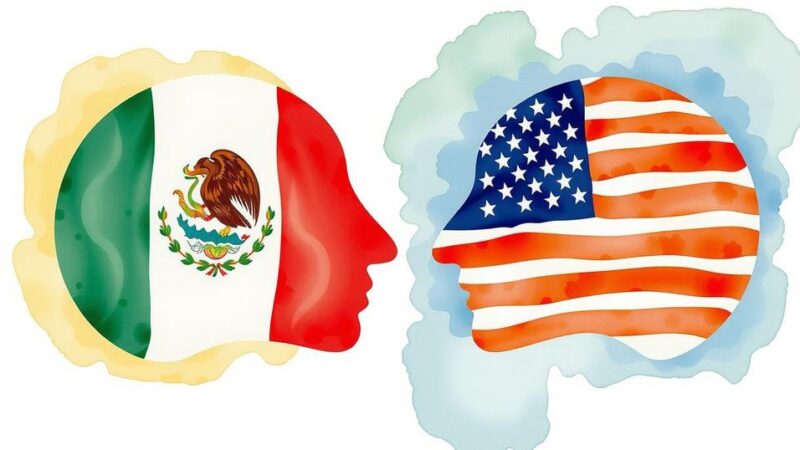Following Trump’s re-election, Nigeria faced a 90-day freeze on USAID funding, leading to the suspension of critical healthcare projects. Organizations dependent on foreign aid witnessed halting operations, jeopardizing healthcare access for millions. Despite government efforts to increase funding, the gap left by USAID is significant, leading to fears of exacerbated public health crises in Nigeria.
The uncertainty following Donald Trump’s re-election raised concerns globally, particularly regarding foreign aid policies that impact countries like Nigeria, which heavily relies on such assistance to bolster its healthcare system. As concerns mounted, Aaron Sunday, from the Association of Positive Youths with HIV in Nigeria (APYIN), noted the unpredictability of Trump’s decisions and the possible ramifications for healthcare initiatives in Nigeria.
An executive order led to a 90-day freeze on foreign aid, targeting USAID for funding cuts. This announcement had immediate consequences, resulting in suspensions of chronic healthcare projects, such as the Lift Equity project, which aimed to enhance access to HIV care for adolescents in Nigeria. With halted engagement and advocacy efforts, the progress made seemed to vanish abruptly.
The suspension of USAID projects sent shockwaves throughout Nigeria’s healthcare sector, igniting a debate about the implications of reduced foreign aid. While some viewed it as an impetus for government self-sufficiency, others feared that the cutbacks would precipitate a healthcare crisis, leaving millions vulnerable and without necessary services. Many non-governmental organizations faced operational stasis, and essential health interventions were suddenly curtailed, resulting in devastating consequences for healthcare access in Nigeria.
Nigeria’s dependence on foreign aid is profound, with USAID playing a critical role in funding health programs. In 2023, the US provided nearly $72 billion in aid globally, with USAID contributing over $44 billion. As the leading international aid donor, any disruption from USAID directly threatens ongoing health initiatives, particularly those related to HIV/AIDS, tuberculosis, and vaccine distribution.
The impact of USAID’s absence is evident, particularly in health services, where most programs focus on infectious disease control and general public health. Despite claims that “lifesaving” humanitarian assistance would continue, many clinics and research organizations have stopped operations due to funding uncertainties. This leaves many Nigerians without vital treatments, especially for chronic conditions like HIV/AIDS, intensifying the existing strain on Nigeria’s healthcare system.
The interruption of programs hasn’t only harmed health initiatives; it had a ripple effect on maternal health, nutrition programs, and aid for vulnerable populations, including internally displaced persons (IDPs). In several states, such as Zamfara and Ebonyi, the cessation of USAID-funded interventions led to a decline in support services that are crucial in fighting malnutrition and tuberculosis. The suspension of these programs jeopardizes the health and well-being of marginalized communities.
In response to the growing crisis, Nigeria’s government has begun to allocate funds for healthcare reforms, such as the recent approval of $1.07 billion for healthcare enhancements. Nevertheless, these amounts are insufficient compared to past USAID contributions, leading to concern within civil society organizations (CSOs) about the impending health crises in the absence of reliable foreign aid.
Numbering among those alarmed by these developments, experts urge the Nigerian government to increase domestic funding for healthcare to counterbalance the effects of reduced foreign aid. The Executive Director of Life Helper Initiatives, Tayo Fatinikun, emphasized that continued reliance on foreign aid is unsustainable and called for a stronger commitment from the government to healthcare funding.
In light of this funding crisis, CSOs are exploring other funding sources and engaging with local governments to maintain critical services. However, pessimistic views among analysts suggest that the aid freeze may become a permanent change, profoundly affecting Nigeria’s healthcare landscape and exacerbating public health challenges related to infectious diseases and maternal care.
The recent cuts to USAID funding have raised significant concerns regarding the future of Nigeria’s healthcare system, which heavily depends on foreign assistance. The pausing of crucial health programs threatens vulnerable populations and raises alarms about impending health crises. While the Nigerian government attempts to bridge funding gaps, the situation underscores the vital need for sustainable domestic investment in healthcare as reliance on foreign aid becomes less tenable.
Original Source: www.premiumtimesng.com






